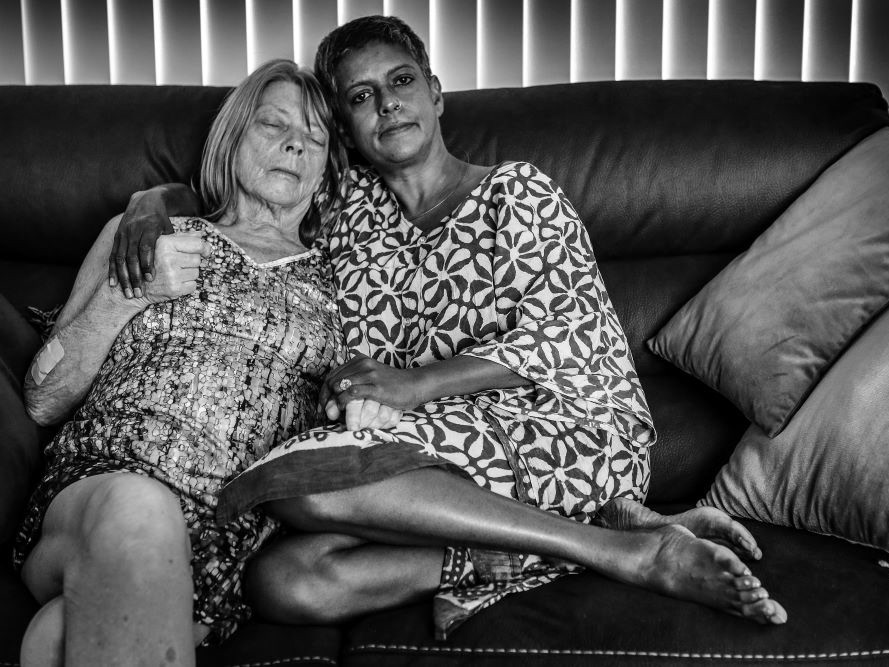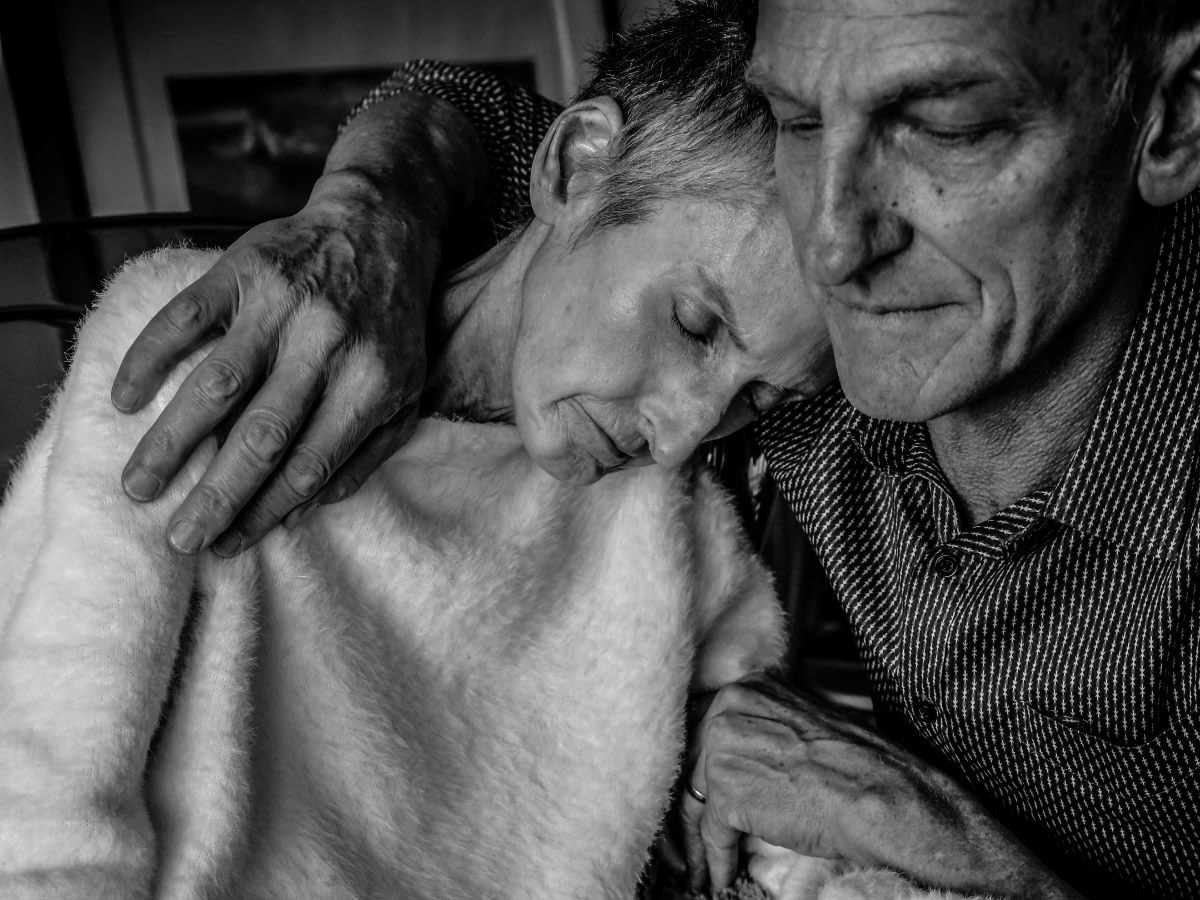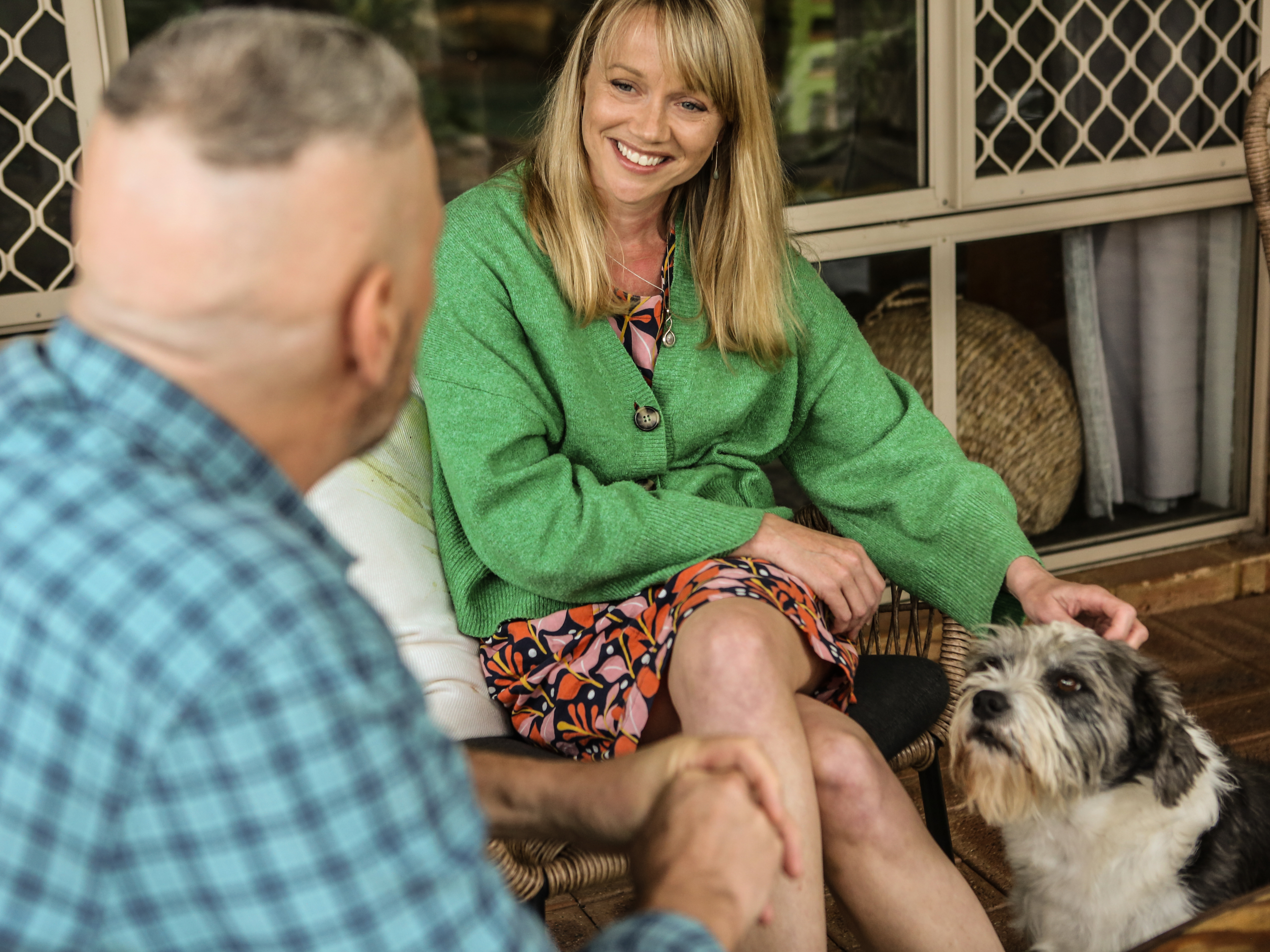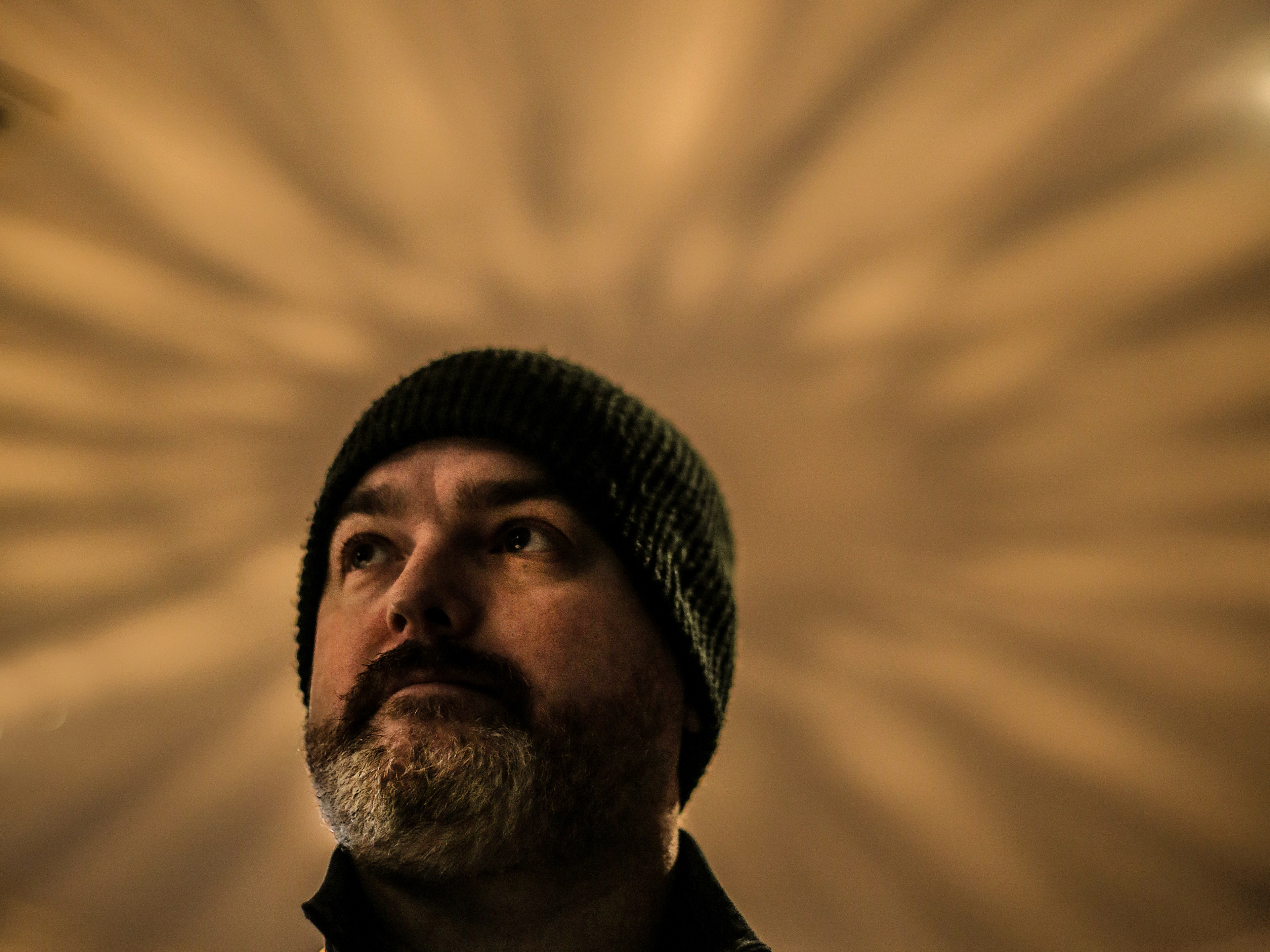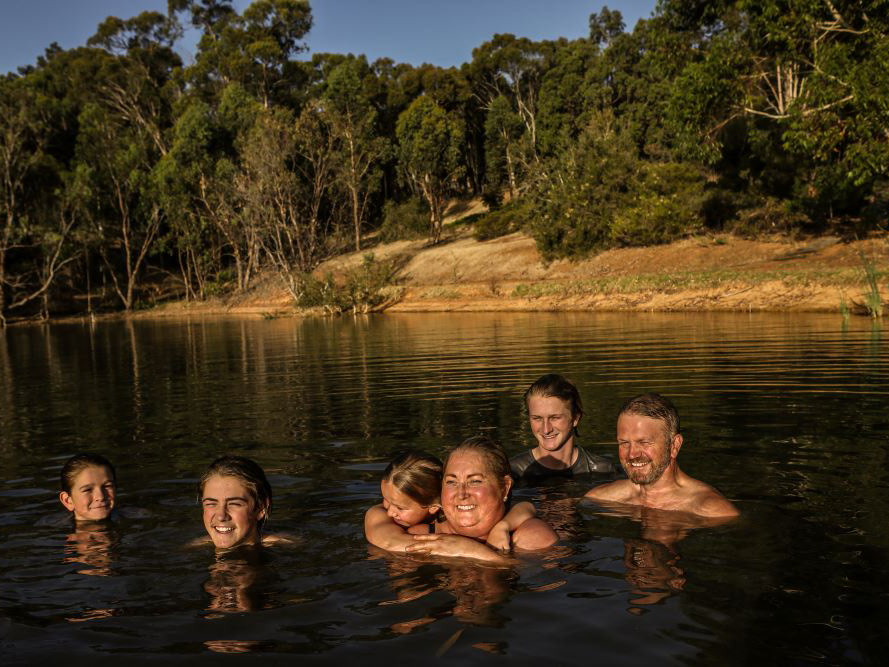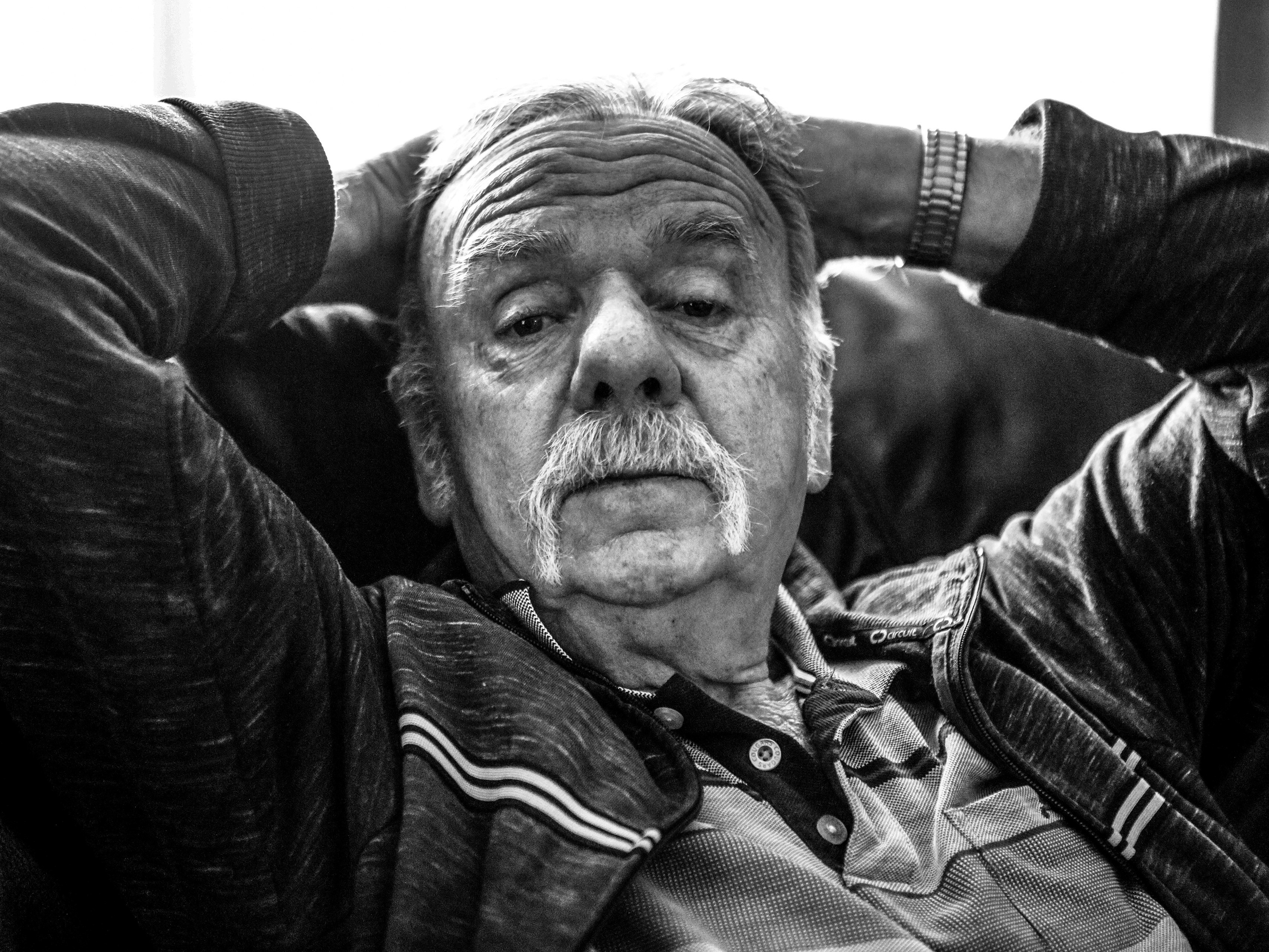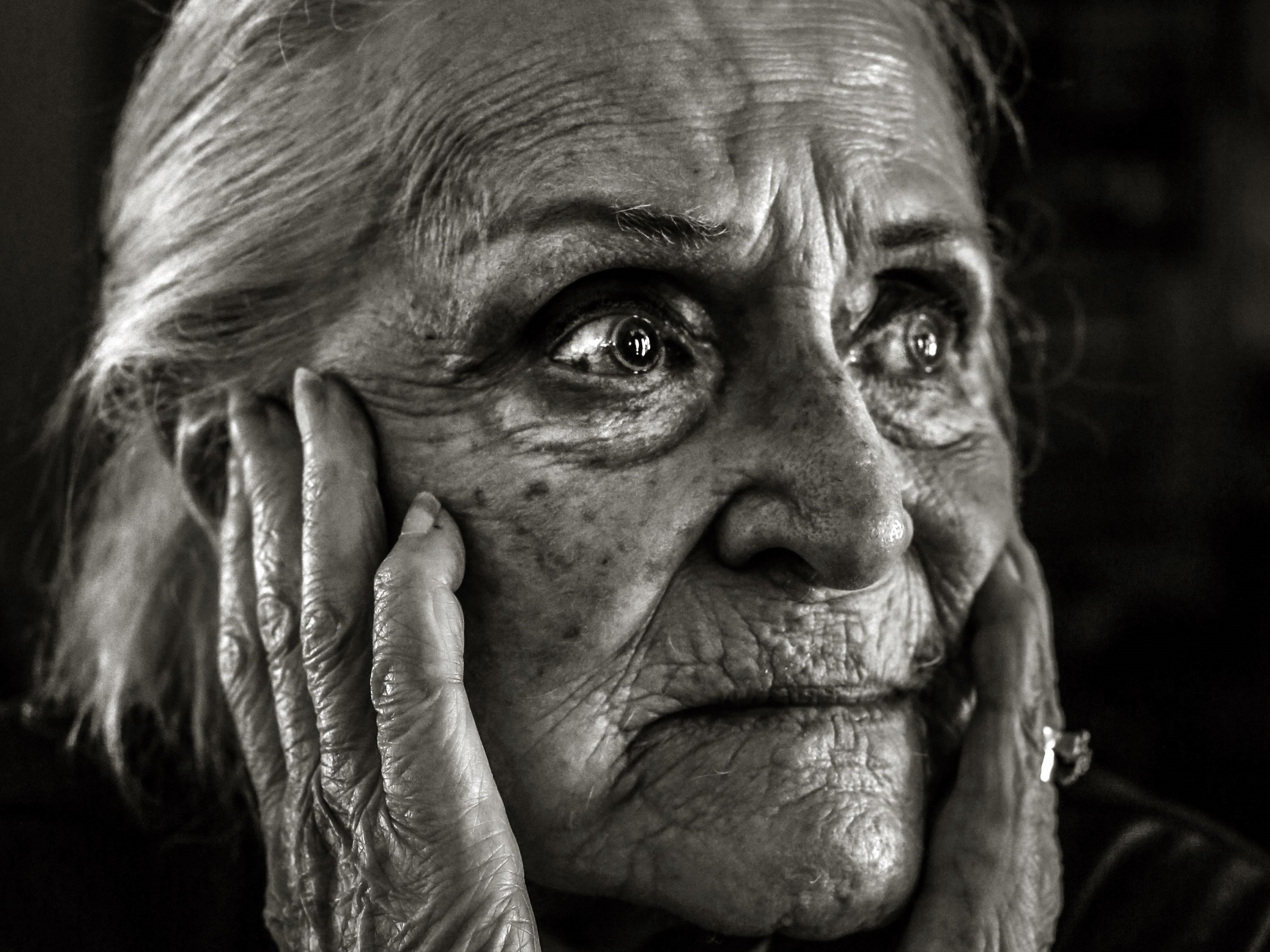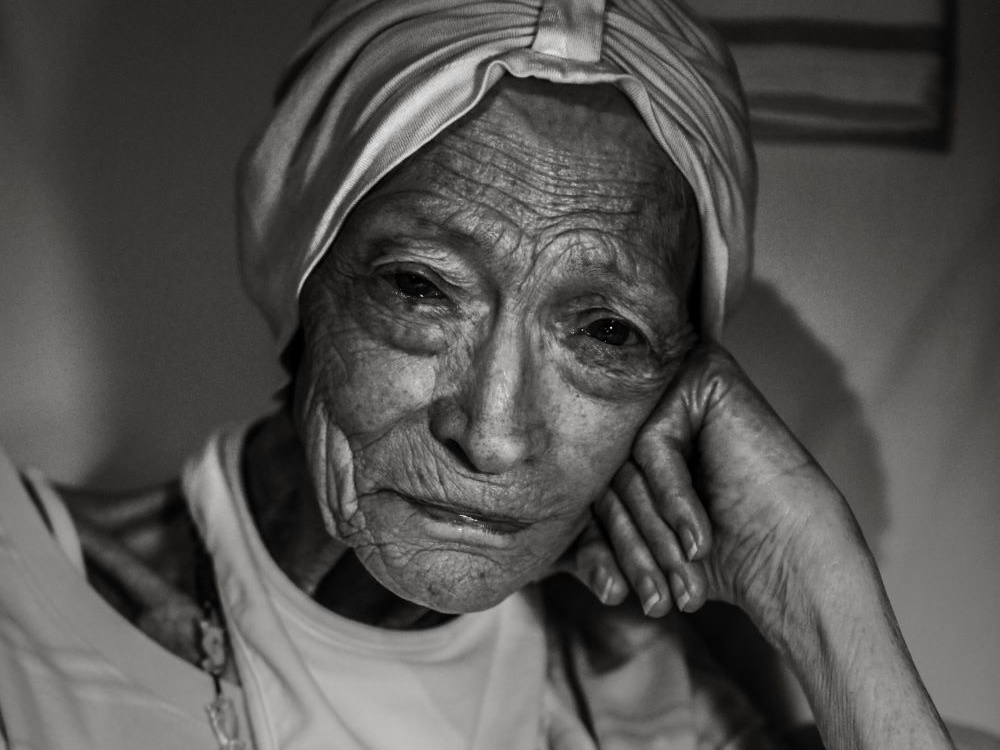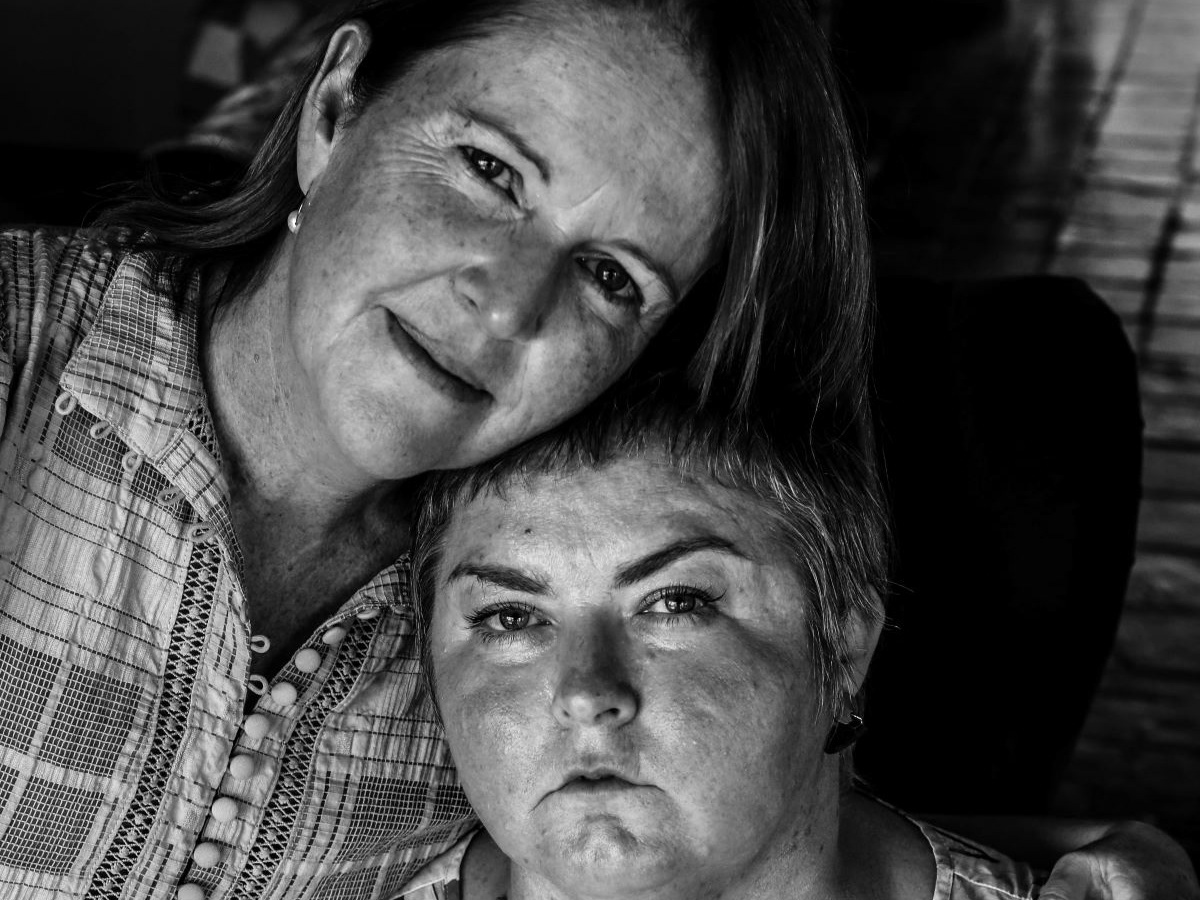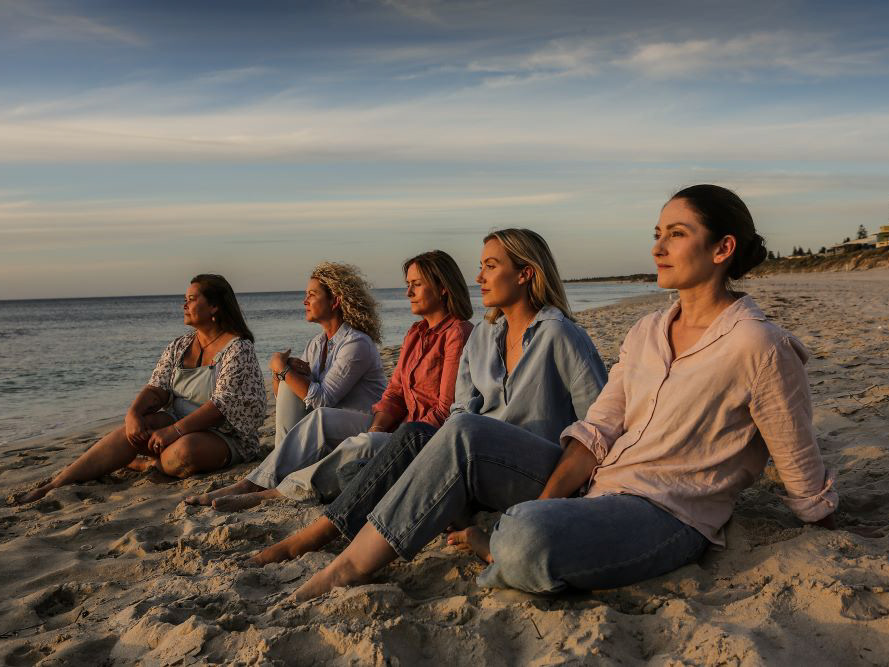"Scleroderma has taken everything away from me. Everything I enjoy in life.”
Diagnosed with the rare, non-hereditary and incurable disease at the age of 44, Lynette Gelsomino watched as her body’s immune system slowly waged war on itself. Over the next 14 years it progressively scarred and hardened her body’s connective tissues - tendons, ligaments, skin and internal organs.
Now 58, the most noticeable effect of Lynette's scleroderma -- which literally means 'hard skin' -- is her hands and feet. Skin that won’t stretch, slowly shrinking over her joints forcing her fingers and toes to bend back on themselves
“I always enjoyed being very active.," Lynette said. "I worked as a photographer before I got sick. But then I could no longer even hold a camera."
Her breathing and digestion are also affected: hard and brittle lungs that struggle to expand and send oxygen around the bod, a rigid throat that makes swallowing difficult and agut that won’t absorb food, causing weight loss and malnutrition.
“I always liked a bit of glamour,” Lynette said, “But you reach a point where you no longer recognize yourself. You might walk past a mirror and you see your reflection. It always comes as a shock.”
Melbourne GP, Nick Carr has seen scleroderma's cruel effects on three patients now. “It is a really nasty, awful disease," he said. "It affects so many systems in the body, heart, lungs, gut. For Lynette it was her capacity to swallow and her gastrointestinal functions.”
Lynette sought out Dr Carr in mid-2023 to ask about the option of voluntary assisted dying. She'd heard about the doctor's role helping her friend, Nia Sims, who also had scleroderma and was a vocal advocate for choice at the end of life, to die the year before.
The nature of Lynette's illness made it difficult for her to meet the VAD eligibility criteria of 6-12 months left to live. But she persisted.
“Scleroderma is not one of these diseases like a malignancy or neurological disorder, which are just relentlessly progressive," Dr Carr explained. "People with scleroderma usually manage with the disease with treatment for many, many years. And the life ending event may be sudden and unexpected, so it’s very hard to predict.”
Dr Carr and a specialist rheumatologist agreed her difficulty swallowing and the blockages in her intestine meant she would, on the balance of probabilitiies, die within six months. Dr Carr determined the VAD substance should be administered intravenously. Most importantly, it could be done in her home at the time of her choosing.
“It was such a relief,” Lynette said. “It has taken away the panic. Prior to it, I felt like I had absolutely no control. I would have nights where my stomach would be very bloated, and there was this whole fear of bowel obstruction and vomiting. I don't want to go into hospital and be plugged up to tubes and pumped up with morphine. I just want to be in my home.
“Now that we have [the VAD substance], it's an entirely different story. It feels civilized. It really is a civilized way of leaving this earth.
“I believe it's just a human right. You know, that's all we do in this world is fight for human rights. And I think this is it. This is something else that is essential for us.
“Of course, there are people out there who will choose not to, or they might have religious beliefs. But for me, it's given a lot of comfort because I've gone through so much, and I feel like I want my last days to go the way I want them to go.”
Sadly, Lynette never achieved her wish. A chest infection led to an emergency admission to hospital where she died without accessing her VAD medications. Dr Carr said Lynette 's story is not unusual.
“When people go downhill, it can be quite sudden, quite unpredictable. And sometimes -- I've been through this with other people -- an event happens in the course of the disease, which takes the decision out of their hands. That's the nature of terminal illness."
But he is adamant her death with out VAD should not be considered a 'failure'. “She had excellent palliative care. We have to remember that prior to voluntary assisted dying, this was how most people died.
"It went as well as it could have in that circumstance. It just wasn't what she would have chosen.”

